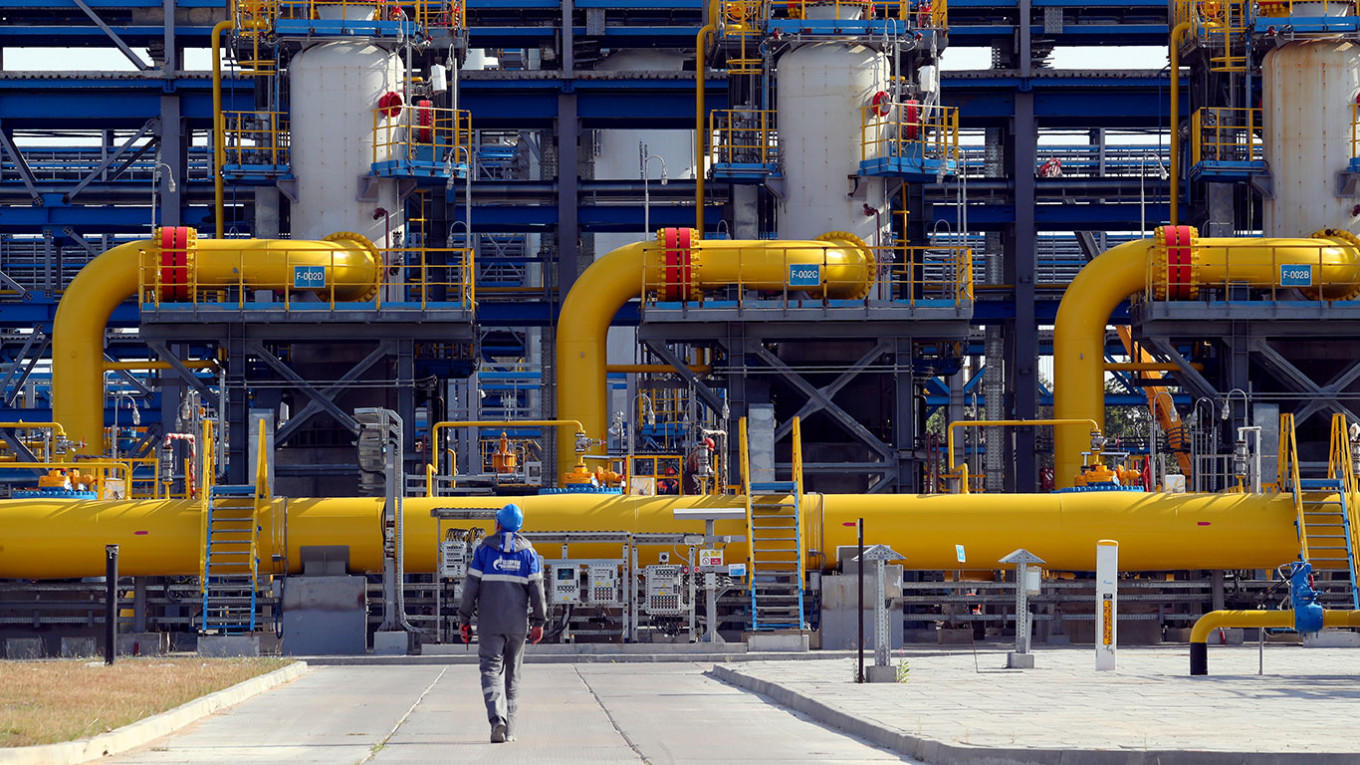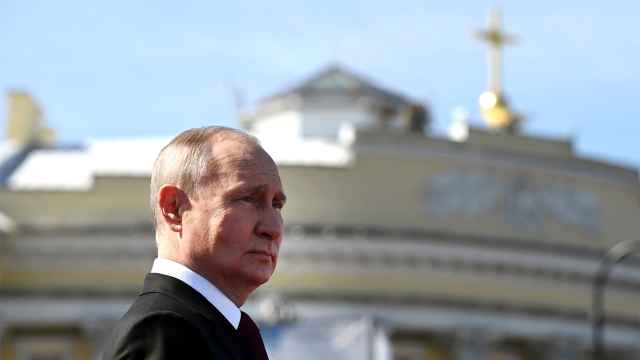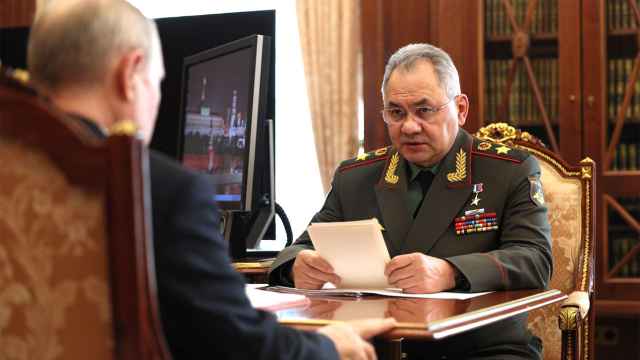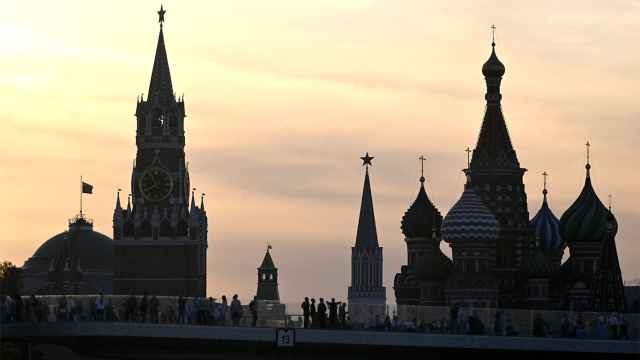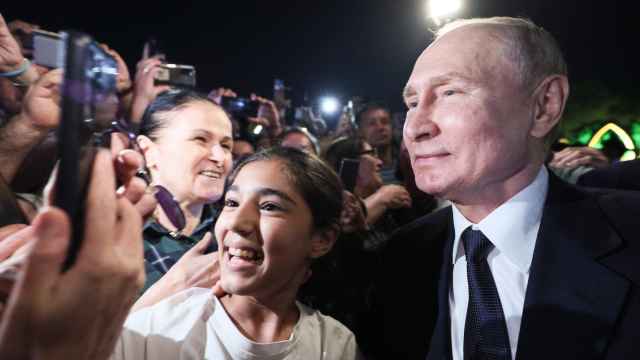That naughty Vladimir Putin is up to his tricks again. Not weaponizing football hooligans or COVID vaccines this time, but apparently gas.
From U.S National Security Advisor Jake Sullivan to British Defence Secretary Ben Wallace, politicians are queuing up to blame Russia for the current global gas crisis. The trouble is that not only is this bad analysis, it is also bad politics.
The economics
As has been documented, the current gas crisis has numerous causes, which have combined in a singularly problematic way.
A year of coronavirus (COVID-19) which saw reserves scaled down in a “gas glut”; a hard winter and a hot summer, both of which meant greater consumption; accidents interrupting supply lines.
All this is exacerbated by a heightened demand from Asia, which is essentially monopolizing the liquid natural gas (LNG) which otherwise represents the fungible supply often relied on to make up for shortfalls in piped gas.
And, of course, European buyers who had not wanted to commit themselves to long-term contracts as a result ended up paying spot prices.
But where does Russia fit? Moscow has been fulfilling its contract commitments and, far from somehow “choking off” the gas as British sources have been claiming, is supplying close to record levels.
Of course, Gazprom will be looking to maximise its profits, just as the Kremlin is inevitably trying to use the situation to push German regulators into giving the final OK to the Nord Stream 2 pipeline.
The morality
What, though, is the sin here?
First of all, Russia has no moral duty to provide more gas whenever the West wants it. So long as they observe their contractual obligations, the rest is simple market economics. To be sure, it would be very convenient for everyone else if Moscow were willing and able to increase the supply, but considering the continued grip of Western sanctions on Russia, as well as the barrage of sanctimonious critiques (which, to be fair, it is not that the current regime doesn’t deserve, but which are not levelled against other regimes which may deserve it even more), should we expect Putin to go out of his way to do us a favour?
Are the U.S. and Qatari LNG suppliers who eagerly pivoted to service the seemingly insatiable Asian market also being castigated as malign market manipulators and profiteers? The question is naturally rhetorical: of course not.
Besides, how far could Putin help, so long as Nord Stream 2 remains locked in regulatory limbo? It is clear that there is more capacity in the pipelines which cross Ukraine. However, Moscow is understandably reluctant to pay Kiev more transit fees.
More to the point, those pipelines largely connect to legacy gas fields in the Nadym-Pur-Taz (NPT) region in West Siberia, whose capacity is in decline and which must prioritise local needs.
Nord Stream 1 and 2 are fed by the new Yamal fields, but with the latter pipeline still closed, then the Russians are constrained in how much extra supply they could provide. Although there are interconnectors between the systems, even if Moscow wanted to send Yamal gas through the Central Route across Ukraine, it is unclear if they could, given that these capillaries are being used for domestic supply.
In other words, it’s complex.
The politics
But no problem is ever so complex that politicians cannot distil it into banal simplifications and crude rhetoric. Especially when public opinion is becoming increasingly demanding, a scapegoat is always a good distraction, and these days there is no scapegoat better than a Russian one. (A scapebear?)
There seem to be three main reasons for the unusually crude “analysis” being deployed over the gas crisis, each of which has a particularly problematic impact on policy, which is why this is more than just a jeremiad against crass Western political headline-chasing.
Nonetheless, that lazy and self-interested search for an external excuse is certainly one of those factors. The particular problem with lazy explanations is that they often lead to lazy — and that means expensive and/or fruitless — policy responses. Talk of creating a European strategic gas reserve, for example, would be expensive and politically complex, and take years, all of which mean it would have no impact on the current situation. However, it can get much more political traction by being securitised, presented as a way of “defending” Europe against Putin's “energy weapon.”
The second is that the Nord Stream 2 issue has become about much more than the pipeline but a tribal divide over the place of Russia in the world. Whether or not some of the pipelines' foes were also motivated by interests in LNG, whether selling it or receiving it, this has assumed a significance out of all proportion to the actual pipeline.
Those who claim that it would somehow make Europe more dependent on Russia's “energy weapon” fail to explain quite how. Yes, it would allow Gazprom to send as little as it could through the Ukrainian pipes and thus minimize payments to Kiev, which is undoubtedly (and no doubt intentionally) bad for the Ukrainians, but it would hardly affect how much Russian gas Europe consumes.
If anything, it might actually increase the EU's energy security. Although the days of Moscow turning off the gas are likely gone – the Russians cannot afford to go without the income — when Europe has suffered in the past, it was essentially as collateral, caught by the Kremlin's dispute with Kiev.
Yet while Putin might be willing to play hardball with Ukraine, he would likely think twice before trying to do the same with Germany. It is worth noting that Angela Markel has been very bullish that further sanctions would result from any Russian efforts to “weaponize” the pipeline.
Thus an essentially emotional campaign against Nord Stream 2 limits Europe's energy options and keeps prices high, in a last-ditch bid to punish Gazprom and the Kremlin (and, implicitly, Germany). Quite who is weaponising gas here?
Thirdly, the easy assumption that whenever Russia is involved “hybrid war” and “malign influence” come in its wake, while understandable, always risks spiralling into a vicious circle.
Touchy, acutely aware of its relative weaknesses and forever seeing subtle plots in Western blunders, the Kremlin tends to respond badly to overheated political rhetoric. One of the great virtues of Joe Biden's handling of Putin at the Geneva summit was to keep the tough talking to the private session, while treating Russia with respect in public. This may sound trivial, but policies are decided by people, and the ageing lords of the Kremlin take language seriously.
Meanwhile, the risk is that at home, such rhetoric locks Western governments into futile and counter-productive gestures. Already I am aware of at least a couple of European foreign ministries brainstorming how to “punish Moscow for creating the gas crisis” just in case their political masters demand it. I asked one of those involved if the team actually believed Russia was to blame. Of course not, came the reply, but you know how politicians are…
The wicked problem
None of this is to exonerate Moscow for all the destructive and antagonistic things it does do, from poisonings in Britain to trolling in the infosphere. Indeed, to a considerable extent, it is simply reaping the fruits of years of such activities, such that too many, too easily believe too much that goes wrong is somehow down to Russia's unseen and unfriendly hand.
However, there are many — analysts, experts, policymakers — who do know better or should know better.
In many ways, the gas crisis is a fitting metaphor for the challenges of the modern world: complex, global, hard to fix and likely to have long and unpredictable impacts. The policies of particular countries may exacerbate it a little here, alleviate a little there. Certainly were Germany to approve Nord Stream 2 and other countries then buy gas from Russia — especially on the longer-term contracts it craves — that would help. It wouldn’t magically make the underlying issues disappear, though.
The answer to problems of wicked complexity is not to pretend they are simple, not to look for a “usual suspect” to blame. It is to look for solutions of appropriate complexity. At present, for the West, this looks like a fail.
This article was first published by BNE InelliNews.
A Message from The Moscow Times:
Dear readers,
We are facing unprecedented challenges. Russia's Prosecutor General's Office has designated The Moscow Times as an "undesirable" organization, criminalizing our work and putting our staff at risk of prosecution. This follows our earlier unjust labeling as a "foreign agent."
These actions are direct attempts to silence independent journalism in Russia. The authorities claim our work "discredits the decisions of the Russian leadership." We see things differently: we strive to provide accurate, unbiased reporting on Russia.
We, the journalists of The Moscow Times, refuse to be silenced. But to continue our work, we need your help.
Your support, no matter how small, makes a world of difference. If you can, please support us monthly starting from just $2. It's quick to set up, and every contribution makes a significant impact.
By supporting The Moscow Times, you're defending open, independent journalism in the face of repression. Thank you for standing with us.
Remind me later.



